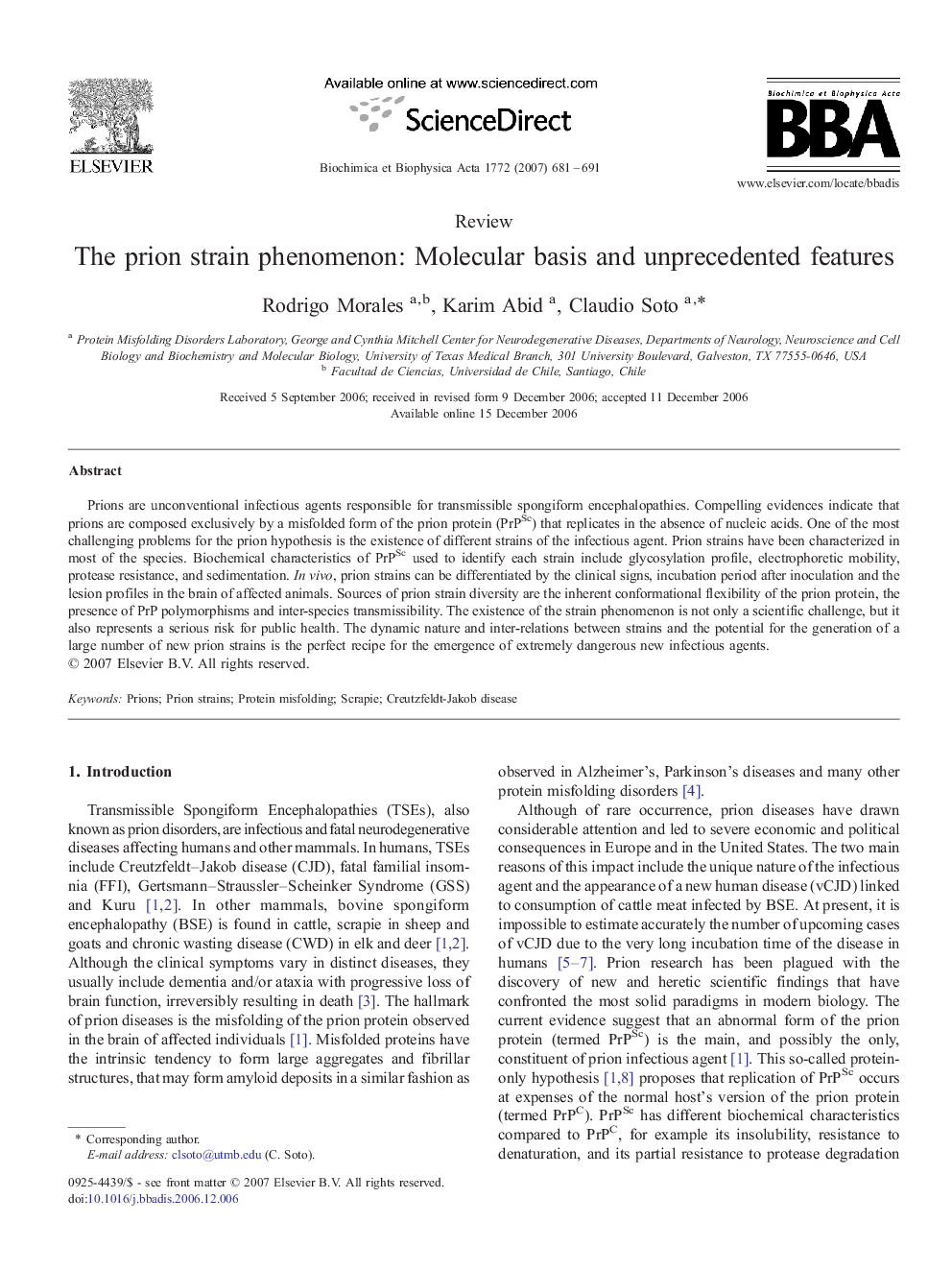| Article ID | Journal | Published Year | Pages | File Type |
|---|---|---|---|---|
| 1905770 | Biochimica et Biophysica Acta (BBA) - Molecular Basis of Disease | 2007 | 11 Pages |
Prions are unconventional infectious agents responsible for transmissible spongiform encephalopathies. Compelling evidences indicate that prions are composed exclusively by a misfolded form of the prion protein (PrPSc) that replicates in the absence of nucleic acids. One of the most challenging problems for the prion hypothesis is the existence of different strains of the infectious agent. Prion strains have been characterized in most of the species. Biochemical characteristics of PrPSc used to identify each strain include glycosylation profile, electrophoretic mobility, protease resistance, and sedimentation. In vivo, prion strains can be differentiated by the clinical signs, incubation period after inoculation and the lesion profiles in the brain of affected animals. Sources of prion strain diversity are the inherent conformational flexibility of the prion protein, the presence of PrP polymorphisms and inter-species transmissibility. The existence of the strain phenomenon is not only a scientific challenge, but it also represents a serious risk for public health. The dynamic nature and inter-relations between strains and the potential for the generation of a large number of new prion strains is the perfect recipe for the emergence of extremely dangerous new infectious agents.
